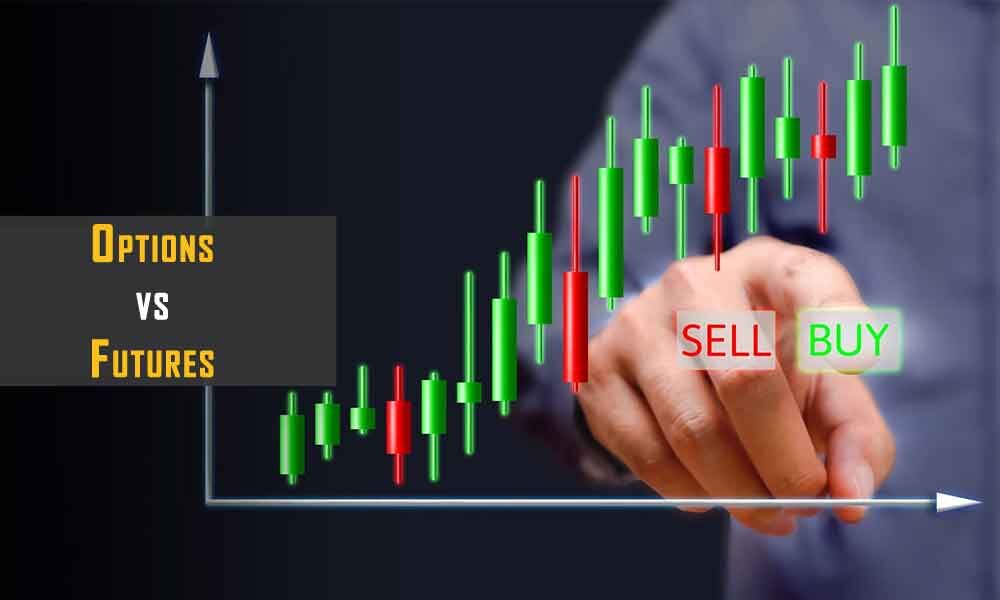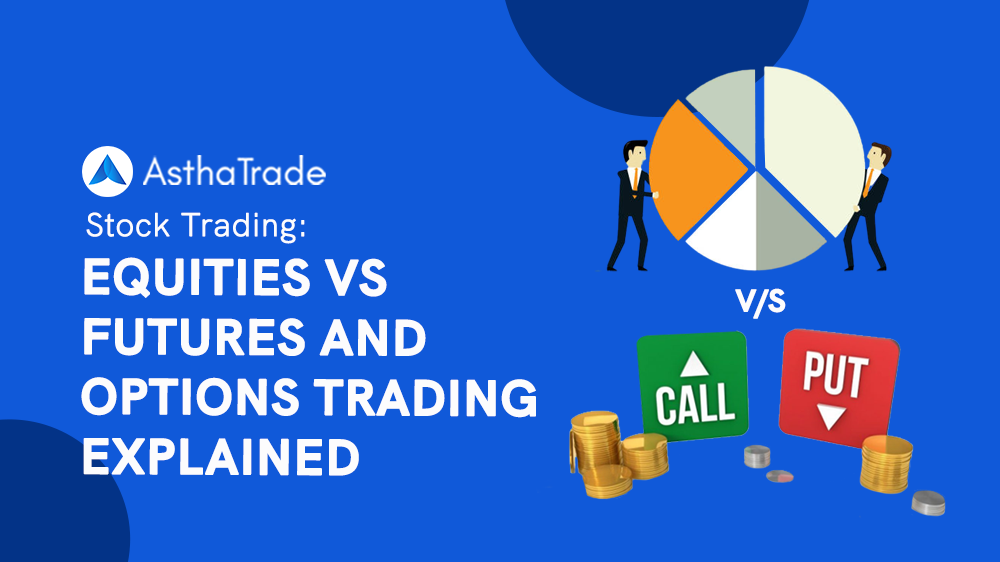Introduction: The World of Derivatives
Imagine you’re watching your favorite stock soar, but you’re hesitant to invest directly. You’d love to capitalize on the potential gains, but you’re also worried about the risk. This is where the world of derivatives comes in, offering tools for profit potential while managing your risk exposure. Two of the most popular derivative instruments are options and futures contracts. Both offer ways to speculate on price movements, but they come with distinct characteristics and advantages.

Image: www.thehansindia.com
This article will delve into the complex world of options and futures trading, clarifying their differences, providing a comprehensive overview, and offering valuable insights for both novice and seasoned traders.
Understanding Options and Futures Trading
Options: The Right but Not the Obligation
Options contracts give the holder the right, but not the obligation, to buy or sell an underlying asset at a specific price (the strike price) on or before a certain date (the expiration date). They are like a ticket with an expiration date, allowing you to enter a trade if you wish, but not forcing you.
There are two main types of options:
- Call Options grant the right to buy the underlying asset. They are profitable when the underlying asset price rises above the strike price.
- Put Options grant the right to sell the underlying asset. They are profitable when the underlying asset price falls below the strike price.
Futures: A Binding Agreement
Futures contracts, on the other hand, are legal agreements to buy or sell a specific asset at a predetermined price on a future date. Unlike options, futures are binding, meaning both parties are obligated to fulfill the contract. This makes them a more speculative method of trading, as potential gains and losses are not limited.

Image: asthatrade.com
Key Differences Between Options and Futures
Here’s a table highlighting the key differences between options and futures trading:
| Feature | Options | Futures |
|---|---|---|
| Contract Type | Right, but not obligation | Binding agreement |
| Price Definition | Strike price | Predetermined price |
| Expiration Date | Specific date | Specific date |
| Potential Gain/Loss | Limited to premium paid | Unlimited |
| Margin Requirement | Lower | Higher |
| Leverage | Limited | Higher |
Choosing the Right Derivative: Options vs. Futures
The choice between options and futures depends on various factors, including your risk tolerance, trading style, and investment goals:
Options: Limited Loss, Risk Management
Options offer a limited risk profile. Your maximum loss is the premium you paid for the option. They are ideal for traders looking to:
- Hedge Existing Investments: Options can be used to protect your portfolio against adverse market movements.
- Generate Income: Selling options can generate steady income streams.
- Speculate on Price Movements: Options offer the potential to profit from price fluctuations.
Futures: High Leverage, Risk-Reward
Futures provide higher leverage, magnifying both potential profits and losses. This makes them attractive to traders seeking significant gains:
- Profit from Market Volatility: Futures thrive in volatile markets, allowing you to profit from sharp price swings.
- Long-Term Predictions: Futures contracts with longer expirations are suitable for longer-term market forecasts.
- Trading Commodities: Futures are predominantly used for trading commodities like oil, gold, and agricultural products.
Current Trends and Developments
The derivatives market is constantly evolving, driven by technological advancements, regulatory changes, and shifting market conditions. Here are some notable trends:
- Growth of Online Trading Platforms: Digital platforms have made derivatives trading more accessible, attracting a wider range of investors.
- Increased Use of Algorithmic Trading: Automated trading algorithms are employed to execute trades at high speeds, leading to increased market efficiency.
- Increased Regulations: Authorities are tightening regulations to ensure market integrity and investor protection.
Tips and Expert Advice
- Understand the Risks: Both options and futures involve inherent risks and can result in significant losses.
- Start Small: Begin with a small capital investment and gradually increase your positions as you gain experience.
- Use Stop-Loss Orders: These limit your potential losses by automatically closing your positions when the price reaches a predefined level.
- Educate Yourself: Thoroughly research options and futures trading before making any investments.
- Monitor Your Positions: Regularly review your trades and adjust your strategies as needed.
FAQ
- Q: Which is better, options or futures?
- A: There is no “better” option. The choice depends on your individual trading style, risk tolerance, and investment objectives.
- Q: Are options and futures suitable for beginners?
- A: Both options and futures can be complex and risky. It is advisable to gain significant experience and understanding before venturing into derivatives trading.
- Q: What is the minimum capital requirement for options and futures trading?
- A: The minimum capital requirements vary depending on the broker and the specific contracts.
- Q: How can I learn more about options and futures trading?
- A: Numerous resources are available online, including educational websites, books, and courses.
Options Vs Futures Trading
Conclusion
Options and futures trading offer distinct mechanisms for leveraging market movements, each with its own advantages and risks. Options provide a limited loss profile, while futures offer high leverage. Understanding the nuances of these instruments is crucial for making informed trading decisions.
Are you interested in exploring the world of options and futures trading? If so, remember that thorough research, risk management, and continuous learning are vital for success in this complex but potentially rewarding arena.






